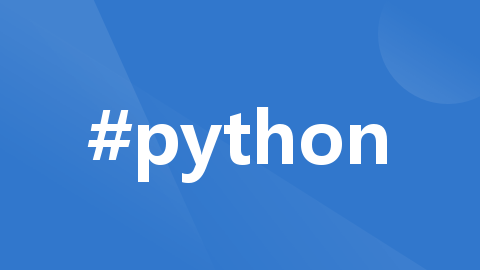解决前端跨域的八种方案
解决跨域的八种实现方案由于同源策略的限制,满足同源的脚本才可以获取资源。虽然这样有助于保障网络安全,但另一方面也限制了资源的使用。 那么如何实现跨域呢,以下是实现跨域的一些方法。一、jsonp跨域原理:script标签引入js文件不受跨域影响。不仅如此,带src属性的标签都不受同源策略的影响。正是基于这个特性,我们通过script标签的src属性加载资源,数据放在src属性指向的服务器上,使用js
解决跨域的八种实现方案
由于同源策略的限制,满足同源的脚本才可以获取资源。虽然这样有助于保障网络安全,但另一方面也限制了资源的使用。 那么如何实现跨域呢,以下是实现跨域的一些方法。
一、jsonp跨域
原理:script标签引入js文件不受跨域影响。不仅如此,带src属性的标签都不受同源策略的影响。
正是基于这个特性,我们通过script标签的src属性加载资源,数据放在src属性指向的服务器上,使用json格式。
由于我们无法判断script的src的加载状态,并不知道数据有没有获取完成,所以事先会定义好处理函数。服务端会在数据开头加上这个函数名,等全部加载完毕,便会调用我们事先定义好的函数,这时函数的实参传入的就是后端返回的数据了。
示例代码:https://github.com/mfaying/lesson/tree/master/cross-origin/jsonp 演示网址:https://mfaying.github.io/lesson/cross-origin/jsonp/index.html
index.html
callback({“test”: 0});
访问index.html弹窗便会显示0
该方案的缺点是:只能实现get一种请求。
二、document.domain + iframe跨域
此方案仅限主域相同,子域不同的应用场景。
比如百度的主网页是www.baidu.com,zhidao.baidu.com、news.baidu.com等网站是www.baidu.com这个主域下的子域。
实现原理:两个页面都通过js设置document.domain为基础主域,就实现了同域,就可以互相操作资源了。 示例代码:https://github.com/mfaying/lesson/tree/master/cross-origin/document-domain 演示网址:https://mfaying.github.io/lesson/cross-origin/document-domain/index.html
index.html
父页面改变iframe的src属性,location.hash的值改变,不会刷新页面(还是同一个页面),在子页面可以通过window.localtion.hash获取值。
示例代码:https://github.com/mfaying/lesson/tree/master/cross-origin/location-hash 演示网址:https://mfaying.github.io/lesson/cross-origin/location-hash/index.html
index.html
四、window.name + iframe跨域
原理:window.name属性在不同的页面(甚至不同域名)加载后依旧存在,name可赋较长的值(2MB)。
在iframe非同源的页面下设置了window的name属性,再将iframe指向同源的页面,此时window的name属性值不变,从而实现了跨域获取数据。 示例代码:https://github.com/mfaying/lesson/tree/master/cross-origin/window-name 演示网址:https://mfaying.github.io/lesson/cross-origin/window-name/parent/index.html
./parent/index.html
./child.html
postMessage是HTML5提出的,可以实现跨文档消息传输。
用法 getMessageHTML.postMessage(data, origin); data: html5规范支持的任意基本类型或可复制的对象,但部分浏览器只支持字符串,所以传参时最好用JSON.stringify()序列化。 origin: 协议+主机+端口号,也可以设置为"*",表示可以传递给任意窗口,如果要指定和当前窗口同源的话设置为"/"。
getMessageHTML是我们对于要接受信息页面的引用,可以是iframe的contentWindow属性、window.open的返回值、通过name或下标从window.frames取到的值。
示例代码:https://github.com/mfaying/lesson/tree/master/cross-origin/postMessage 演示网址:https://mfaying.github.io/lesson/cross-origin/postMessage/index.html
index.html
六、跨域资源共享(CORS)
只要在服务端设置Access-Control-Allow-Origin就可以实现跨域请求,若是cookie请求,前后端都需要设置。 由于同源策略的限制,所读取的cookie为跨域请求接口所在域的cookie,并非当前页的cookie。
CORS是目前主流的跨域解决方案。
原生node.js实现
示例代码:https://github.com/mfaying/lesson/tree/master/cross-origin/cors 演示网址:https://mfaying.github.io/lesson/cross-origin/cors/index.html(访问前需要先执行node server.js命令启动本地服务器)
index.html
var http = require(‘http’);
var server = http.createServer();
server.on(‘request’, function(req, res) {
res.writeHead(200, {
‘Access-Control-Allow-Credentials’: ‘true’, // 后端允许发送Cookie
‘Access-Control-Allow-Origin’: ‘https://mfaying.github.io’, // 允许访问的域(协议+域名+端口)
‘Set-Cookie’: ‘key=1;Path=/;Domain=mfaying.github.io;HttpOnly’ // HttpOnly:脚本无法读取cookie
});
res.write(JSON.stringify(req.method));
res.end();
});
server.listen(‘8080’);
console.log(‘Server is running at port 8080…’);
koa结合koa2-cors中间件实现
示例代码:https://github.com/mfaying/lesson/tree/master/cross-origin/koa-cors 演示网址:https://mfaying.github.io/lesson/cross-origin/koa-cors/index.html (访问前需要先执行node server.js命令启动本地服务器)
index.html
var koa = require(‘koa’);
var router = require(‘koa-router’)();
const cors = require(‘koa2-cors’);
var app = new koa();
app.use(cors({
origin: function (ctx) {
if (ctx.url === ‘/test’) {
return false;
}
return ‘*’;
},
exposeHeaders: [‘WWW-Authenticate’, ‘Server-Authorization’],
maxAge: 5,
credentials: true,
allowMethods: [‘GET’, ‘POST’, ‘DELETE’],
allowHeaders: [‘Content-Type’, ‘Authorization’, ‘Accept’],
}))
router.get(’/’, async function (ctx) {
ctx.body = “0”;
});
app
.use(router.routes())
.use(router.allowedMethods());
app.listen(3000);
console.log(‘server is listening in port 3000’);
七、WebSocket协议跨域
WebSocket协议是HTML5的新协议。能够实现浏览器与服务器全双工通信,同时允许跨域,是服务端推送技术的一种很好的实现。
示例代码:https://github.com/mfaying/lesson/tree/master/cross-origin/websocket 演示网址:https://mfaying.github.io/lesson/cross-origin/websocket/index.html(访问前需要先安装依赖包,再执行node server.js命令启动本地websocket服务端)
前端代码:
var WebSocketServer = require(‘websocket’).server;
var http = require(‘http’);
var server = http.createServer(function(request, response) {
response.writeHead(404);
response.end();
});
server.listen(8080, function() {
console.log(‘Server is listening on port 8080’);
});
wsServer = new WebSocketServer({
httpServer: server,
autoAcceptConnections: false
});
function originIsAllowed(origin) {
return true;
}
wsServer.on(‘request’, function(request) {
if (!originIsAllowed(request.origin)) {
request.reject();
console.log(‘Connection from origin ’ + request.origin + ’ rejected.’);
return;
}
var connection = request.accept('echo-protocol', request.origin);
console.log('Connection accepted.');
connection.on('message', function(message) {
if (message.type === 'utf8') {
const reqData = JSON.parse(message.utf8Data);
reqData.test -= 1;
connection.sendUTF(JSON.stringify(reqData));
}
});
connection.on('close', function() {
console.log('close');
});
});
八、nginx代理跨域
原理:同源策略是浏览器的安全策略,不是HTTP协议的一部分。服务器端调用HTTP接口只是使用HTTP协议,不存在跨越问题。
实现:通过nginx配置代理服务器(域名与test1相同,端口不同)做跳板机,反向代理访问test2接口,且可以修改cookie中test信息,方便当前域cookie写入,实现跨域登录。
nginx具体配置:
#proxy服务器
server {
listen 81;
server_name www.test1.com;
location / {
proxy_pass http://www.test2.com:8080; #反向代理
proxy_cookie_test www.test2.com www.test1.com; #修改cookie里域名
index index.html index.htm;
add_header Access-Control-Allow-Origin http://www.test1.com; #当前端只跨域不带cookie时,可为*
add_header Access-Control-Allow-Credentials true;
}
}
更多推荐
 已为社区贡献1条内容
已为社区贡献1条内容









所有评论(0)